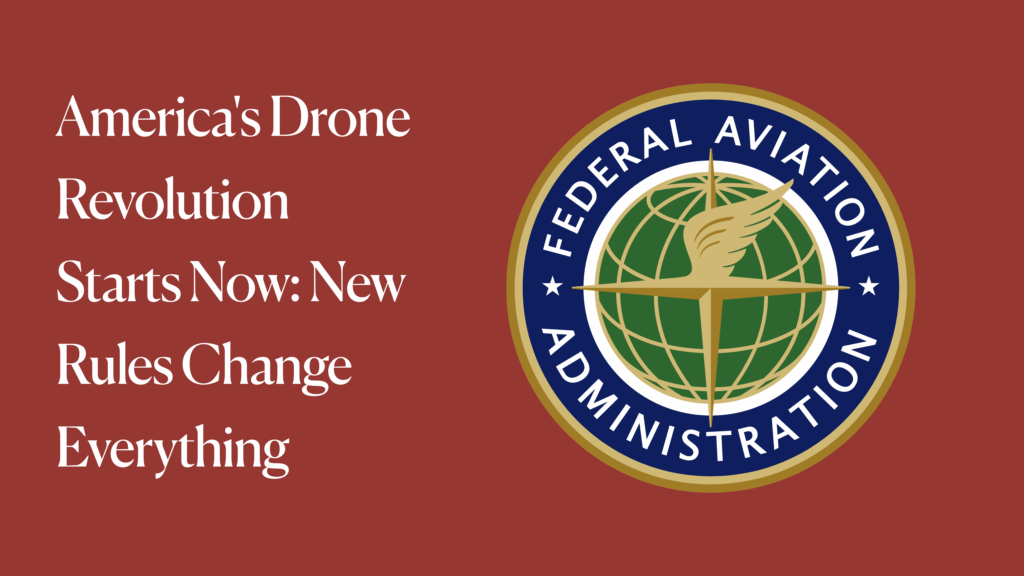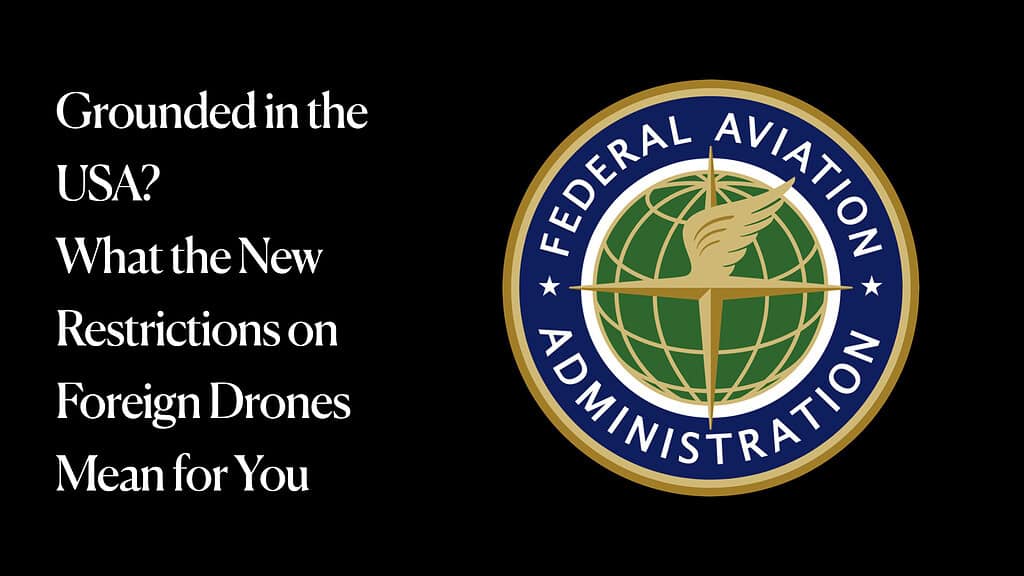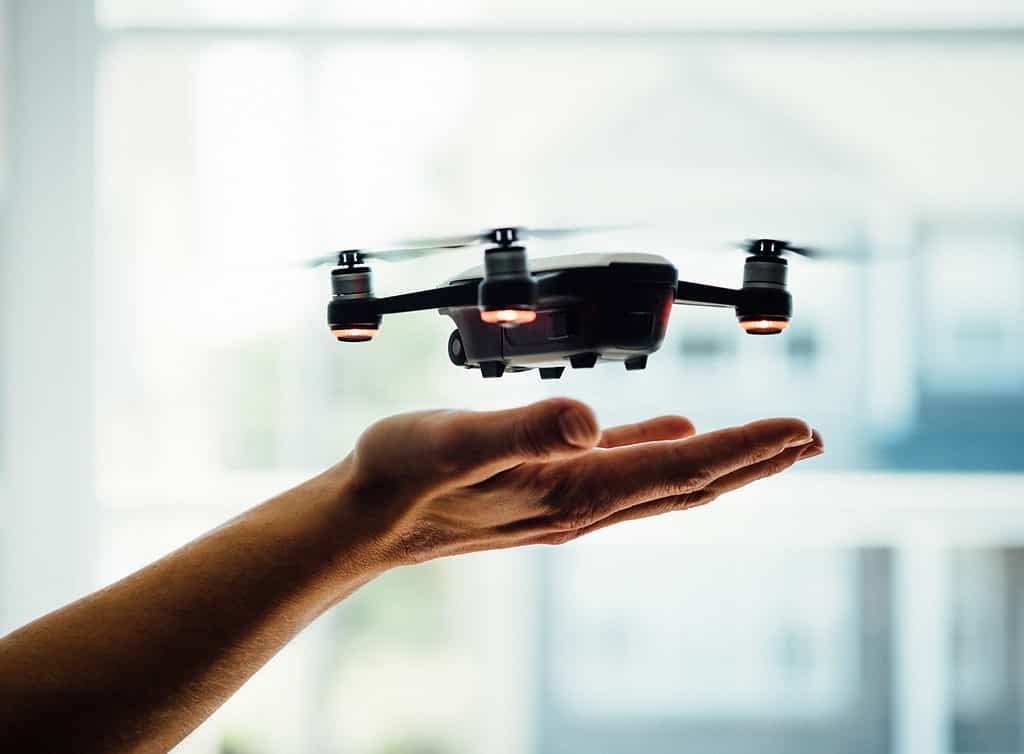Your Amazon package might soon arrive by drone, and your Starbucks could drop from the sky. The government announced the most significant drone rule change in nearly a decade.
Transportation Secretary Sean Duffy made a bold promise: “We are going to unleash American drone dominance.”
What’s Changing
Right now, companies need special permission every time they want to fly drones beyond where the pilot can see them.
It takes months to get approval, and it’s a nightmare.
The new rules, called Part 108, abolish that broken system.
Instead, companies get licenses that work more like driver’s permits. Get approved once, then fly within your limits.
It’s the difference between asking your parents for permission whenever you want to drive versus having your own license.
Two Types of Licenses
Basic License: This permit is for smaller drones that deliver and inspect. Think drones that carry your lunch or check power lines. With this permit, you can operate up to 100 drones.
Advanced License: This license is for bigger, heavier drones doing complex jobs. These can weigh up to 1,300 pounds in rural areas. A complete professional setup is required.
If you’re flying your hobby drone where you can see it? Nothing changes. Those rules stay the same.
The China Problem
Here’s the bigger story: China makes 90% of the consumer drones Americans buy, and brands like DJI dominate the market.
Secretary Duffy said this creates a national security risk: “We’re turning over our skies to one of our main adversaries.”
But the new rules don’t ban Chinese drones directly. They focus on how drones fly, not who makes them. Any hardware bans would need separate laws.
Safety First
The FAA says we have a “Wild West” problem with drones. Last summer, a hobby drone grounded firefighting aircraft during a wildfire emergency.
Under the new rules, every long-distance drone needs:
- Sensors to avoid other aircraft
- Special broadcast signals
- Background checks for operators
- Detailed flight logging
What This Means for You
As a consumer: Drone deliveries become realistic. Your packages, food, and medicine could arrive faster and cheaper.
As a hobbyist: If you want to fly beyond where you can see your drone, you can get a special recreational permit: one drone, 10-mile radius, away from busy areas.
As a business: The drone industry could become huge. The government estimates it could represent 6-7% of the U.S. economy, making it a $1 trillion market.
The Missing Piece
Industry experts expected rules for “extended visual” flights, in which trained spotters help pilots fly up to 3 miles away. Those rules remain unwritten.
This gap matters because it was supposed to be the stepping stone between basic flying and complete autonomy. Now that bridge is missing.
What Happens Next
The rules will be published this week. Then, everyone has 60 days to submit comments and suggestions. After that, the government has 240 days to finalize everything.
Once the new rules take effect, all the old special permissions disappear. Every company flying beyond sight must switch to the new system or stop flying.
The Big Picture
This is the most critical change to drone rules since 2016. It could determine whether America leads the drone revolution or gets left behind.
The old system killed innovation with red tape.
The new system creates a clear path forward.
But success isn’t guaranteed. Companies have just 60 days to influence these rules through public comments. What they say now shapes the next decade of American drone flight.
The drone revolution isn’t coming. It’s here. The only question is whether America will lead it or watch it happen.
NOTE: This page is about the Regulation of Unmanned Aerial Vehicles: Small Unmanned Aerial Systems (SUAS), Small UAS, Remote Piloted Aerial Systems (RPAS), unmanned aerial vehicle (UAV), Unmanned Aerial System (UAS), and drone are interchangeable terms unless specified. Model Aircraft, toy, remote-controlled, and RC aircraft may be covered by the same regulations unless specified.
Find out why
We think you must use a Drone Preflight Checklist
And a Drone Post-flight checklist
Free Drone Flight Checklist PDF
This Drone Flight Checklist is better than others.
It’s free!
It includes both the preflight checklist and post-flight checklist
It’s an easy-to-use printable PDF that covers all your bases.
Traveling with a Drone?
Click here to read our Comprehensive Guide For Traveling With A Drone.
LET US CONNECT YOU
Calling All Drone Service Companies, Trainers, Tour Guides with Drone Experience
Contact Us with your website, email address and phone number using our Contact Page
We want to share your information with visitors who look for credible providers that follow the rules.
NOW IT’S YOUR TURN



Leave a Comment